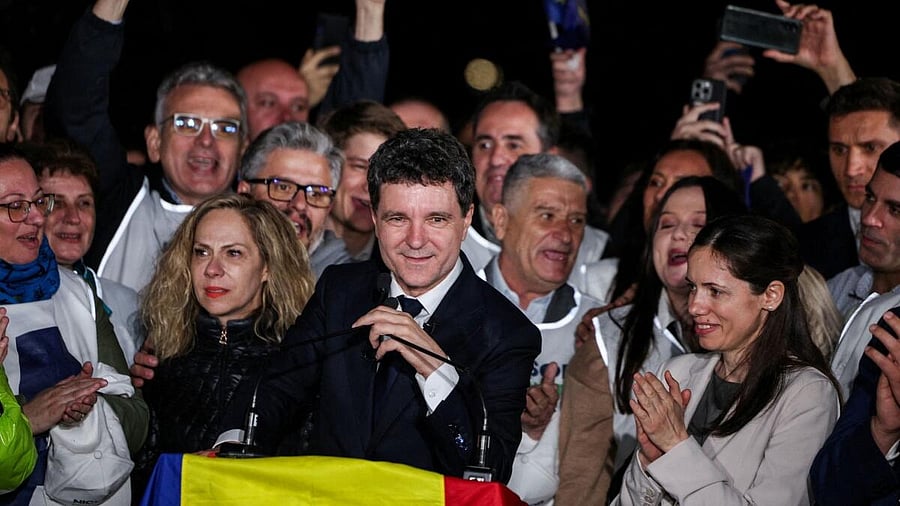
Presidential candidate Nicusor Dan.
Credit: Reuters Photo
In a setback for Europe's surging nationalist forces, Nicusor Dan, a centrist mayor and former mathematics professor, on Sunday won the presidential election in Romania, defeating a hard-right candidate who is aligned with President Donald Trump and has opposed military aid to Ukraine.
With more than 98 per cent of ballots counted, preliminary official results gave 54 per cent of the vote in the presidential runoff to Dan, 55, the mayor of Romania's capital, Bucharest. His opponent, George Simion, a nationalist and fervent admirer of Trump's who had been widely seen as the front-runner, drew only 46%.
As he slipped behind Dan in early counting, Simion told supporters that "we are the clear winners of these elections." He called for national protests should the final count show him as the loser, railing against what he said was an attempt "to steal the victory of the Romanian people."
Dan's victory will probably calm fears in Europe's political mainstream that Romania, which borders Ukraine and plays a vital role in defending NATO's eastern flank against Russia, might join Hungary and Slovakia in opposing help for Ukraine and in cozying up to Moscow.
But it will probably inflame Romania's nationalist camp and its supporters abroad, including Vice President JD Vance, and stoke accusations that the system is rigged. Last year, a Romanian court ordered a last-minute cancellation of a presidential election that an ultranationalist appeared well positioned to win.
In the final days of the campaign, as opinion polls showed the race tightening, Simion laid the groundwork for a Romanian version of Trump's "stop the steal" efforts in 2020. He insisted that only electoral fraud could prevent him from winning.
On Sunday, shortly before voting ended, Simion claimed that "many deceased people" had appeared on electoral lists, echoing the claims of Trump after he lost the 2020 election in the United States. Simion provided no evidence to support his claims.
Dan, a mathematics prodigy in his youth who earned a doctorate in France before becoming a professor in Bucharest, campaigned as a moderate conservative committed to both the European Union, which Romania joined in 2007, and to NATO, which it has been a member of since 2004.
Though supported by much of Romania's political establishment, Dan ran as an independent and presented himself as an outsider untainted by close association with Romania's two main political parties.